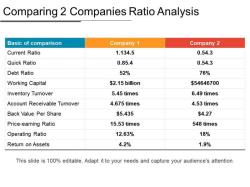How does BlackRock’s investment management make money?
BlackRock, one of the world's largest and most prominent investment management companies, generates revenue through various channels related to its investment management services. Here are the primary ways in which BlackRock makes money:
Asset Management Fees: The largest portion of BlackRock's revenue comes from asset management fees. BlackRock offers a wide range of investment products, including mutual funds, exchange-traded funds (ETFs), and institutional accounts. Clients invest their money in these funds and accounts, and in return, they pay BlackRock management fees based on a percentage of their assets under management (AUM). These fees are typically collected annually and are calculated as a percentage of the total AUM. The specific fee structure can vary depending on the type of fund or investment strategy.
Performance Fees: In addition to standard management fees, BlackRock may also earn performance fees. Performance fees are typically charged when certain investment funds or accounts outperform predefined benchmarks or achieve specific performance targets. This fee structure is more common in hedge funds and alternative investment products.
iShares ETFs: BlackRock's iShares brand is one of the largest providers of ETFs in the world. BlackRock earns money through the fees associated with the management and administration of these ETFs. Investors in iShares ETFs pay expense ratios, which cover the operational costs of the funds, and these expense ratios contribute to BlackRock's revenue.
Technology Solutions: BlackRock has developed proprietary technology platforms, such as Aladdin, which offer risk management, trading, and investment solutions to institutional clients, including asset managers, banks, pension funds, and governments. Revenue is generated by licensing these platforms to clients.
Advisory Services: BlackRock offers advisory services to institutional clients, helping them design and manage their investment portfolios. Advisory fees are collected for providing strategic investment advice.
Securities Lending: BlackRock may engage in securities lending programs with certain investment funds. This involves lending securities from the funds' portfolios in exchange for collateral and earning fees from borrowers.
Fund Sponsorship and Licensing: BlackRock may earn revenue through sponsorship and licensing agreements with various investment funds and products. These agreements may involve fees for the use of the BlackRock brand or expertise in fund management.
Private Equity and Alternative Investments: BlackRock's alternative investment products, such as private equity funds, real estate funds, and infrastructure funds, can generate revenue through various fee structures, including management fees and performance-based fees.
Institutional Client Relationships: Institutional clients, such as pension funds, endowments, and sovereign wealth funds, often have customized investment management solutions provided by BlackRock. These solutions may include separately managed accounts, and BlackRock earns fees for managing these accounts.
Distributions and Servicing Fees: BlackRock may earn fees for distributing investment products and providing servicing support to clients and intermediaries.
It's worth noting that the specific revenue mix may vary from year to year based on market conditions, client demand, and the performance of BlackRock's various investment products and services. As one of the largest and most diversified asset management companies globally, BlackRock's revenue is influenced by a wide range of investment strategies and products, making it a leader in the asset management industry.
Demystifying BlackRock's Investment Management: How They Make Money
BlackRock is the world's largest asset manager, with over $10 trillion in assets under management. It makes money through a variety of sources, including:
- Investment management fees: BlackRock charges its clients fees for managing their assets. These fees are typically based on a percentage of assets under management.
- Performance fees: BlackRock may also charge its clients performance fees, which are paid out if the firm's investment performance exceeds a certain benchmark.
- Transaction fees: BlackRock charges its clients fees for executing trades on their behalf.
- Securities lending: BlackRock loans out its clients' securities to other investors for a fee.
- Other services: BlackRock also provides a variety of other services to its clients, such as financial planning and risk management.
Investment Strategies and Portfolios at BlackRock
BlackRock offers a wide range of investment strategies and portfolios to its clients. These strategies and portfolios are designed to meet the needs of different types of investors, such as individuals, institutions, and governments.
Some of the investment strategies that BlackRock offers include:
- Active management: BlackRock has a team of investment professionals who actively manage clients' portfolios. These professionals use their research and expertise to select investments that they believe will outperform the market.
- Passive management: BlackRock also offers passive investment strategies, such as index funds and ETFs. These strategies track a specific market index, such as the S&P 500 index.
- Alternative investments: BlackRock also offers alternative investments, such as private equity, real estate, and hedge funds. These investments can be more complex and risky than traditional investments, but they can also offer the potential for higher returns.
The Role of Asset Management in BlackRock's Profitability
Asset management is BlackRock's core business and accounts for the majority of its profitability. In 2022, BlackRock generated over $17 billion in revenue from asset management fees.
Asset management is a profitable business because BlackRock is able to charge its clients fees for managing their assets. These fees are typically based on a percentage of assets under management, so BlackRock's profitability increases as the amount of assets it manages increases.
BlackRock's Influence on the Global Financial Markets
BlackRock is one of the largest and most influential investors in the global financial markets. It manages assets for a wide range of clients, including individuals, institutions, and governments.
BlackRock's size and influence give it a significant impact on the global financial markets. For example, BlackRock's investment decisions can move the prices of stocks, bonds, and other assets.
BlackRock also plays an important role in the global financial system by providing liquidity and stability. For example, BlackRock is a major buyer and seller of government bonds, which helps to keep the government bond market orderly.
Public vs. Private Investments in BlackRock's Business Model
BlackRock is a publicly traded company, but it also makes private investments. Public investments are investments that are made in companies that are listed on a stock exchange. Private investments are investments that are made in companies that are not listed on a stock exchange.
BlackRock makes both public and private investments in order to diversify its portfolio and generate returns for its clients. Public investments are generally less risky than private investments, but they also offer the potential for lower returns. Private investments are generally more risky than public investments, but they also offer the potential for higher returns.
Conclusion
BlackRock is the world's largest asset manager and a major player in the global financial markets. It makes money through a variety of sources, including investment management fees, performance fees, transaction fees, and securities lending. BlackRock offers a wide range of investment strategies and portfolios to its clients. Asset management is BlackRock's core business and accounts for the majority of its profitability. BlackRock's size and influence give it a significant impact on the global financial markets. BlackRock makes both public and private investments in order to diversify its portfolio and generate returns for its clients.













